
Ashley Yeager is the associate news editor at Science News. Previously, she worked at The Scientist, where she was an associate editor for nearly three years. She has also worked as a freelance editor and writer, and as a writer at the Simons Foundation, Duke University and the W.M. Keck Observatory. She was the web producer for Science News from 2013 to 2015, and was an intern at the magazine in the summer of 2008. She holds a bachelor’s degree in journalism from the University of Tennessee, Knoxville, and a master’s degree in science writing from MIT. Her book, Bright Galaxies, Dark Matter and Beyond, on the life of astronomer Vera Rubin, will be published by MIT Press in August.

Trustworthy journalism comes at a price.
Scientists and journalists share a core belief in questioning, observing and verifying to reach the truth. Science News reports on crucial research and discovery across science disciplines. We need your financial support to make it happen – every contribution makes a difference.
All Stories by Ashley Yeager
-
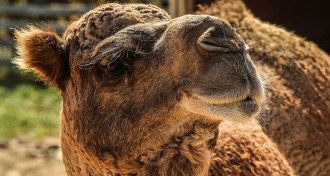 Genetics
GeneticsAirborne MERS virus found in Saudi Arabian camel barn
The air in a Saudi Arabian camel barn holds genetic fragments of MERS, a new study shows.
-
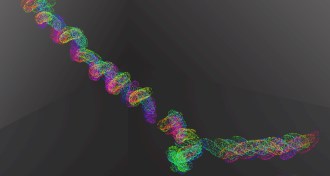 Life
LifeBacteria’s bodies do whirlies to help them swim
Kidney-shaped Caulobacter crescentus bacteria swim with both their corkscrew propellers called flagella and their bodies, scientists say.
-
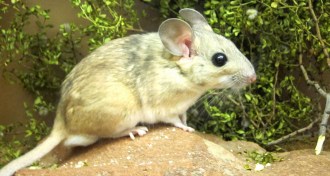 Microbes
MicrobesGut microbes help packrats eat poison
Antiobiotics and fecal transplants in desert woodrats shown that gut microbes can help plant-eaters metabolize toxins.
-
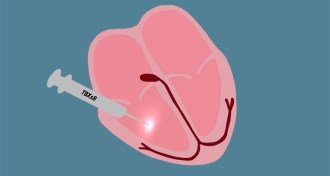 Health & Medicine
Health & MedicinePig heartbeats adjusted with gene therapy
A biological pacemaker created with gene therapy could may one day help people who cannot have implanted electrical pacemakers.
-
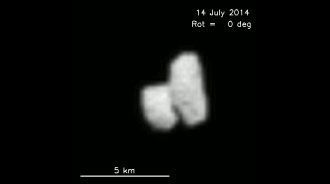 Planetary Science
Planetary ScienceRosetta spacecraft sees possible ‘double’ comet
The comet 67P/Churyumov-Gerasimenko may actually be two objects stitched together.
-
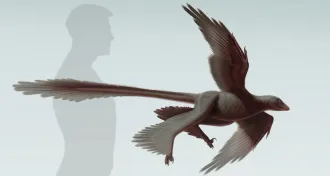 Paleontology
PaleontologyDinos’ long tail feathers may have stopped crash landings
C. yangi's long tail feathers may have helped it control its flight speed as it tried to land.
-
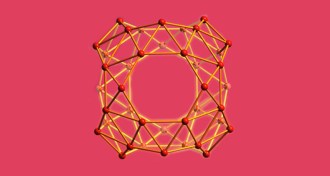 Chemistry
ChemistryBoron atoms take on buckyball shape
The first boron buckyball-like molecule could be used for storing hydrogen, scientists suggest.
-
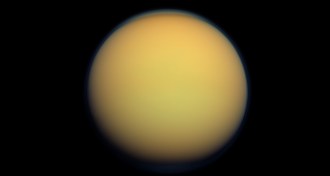 Planetary Science
Planetary ScienceTitan’s origins linked to Oort cloud
The building blocks of Titan may have formed in the early solar system, not from a warm disk around Saturn when the planet was young.
-
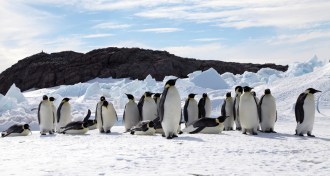 Animals
AnimalsEmperor penguin population could decline by 2100
Emperor penguins’ reign over Antarctic sea ice could be in decline by the beginning of the 22nd century.
-
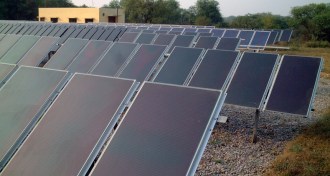 Chemistry
ChemistrySafe salt could yield cheaper, more efficient solar cells
Magnesium chloride could be the key ingredient for concocting efficient solar cells with cadmium telluride.
-
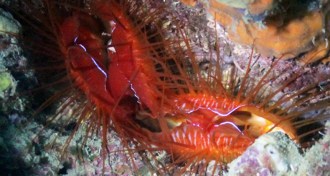 Physics
PhysicsTiny silica spheres put the disco in disco clams
The electric effect in disco clams is actually the result of light scattering off tiny silica spheres.
-
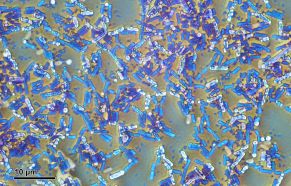 Life
LifeBacteria’s tail spins make water droplets swirl
When bacteria band together, they can turn a fairly tame drop of water into a swirling vortex.